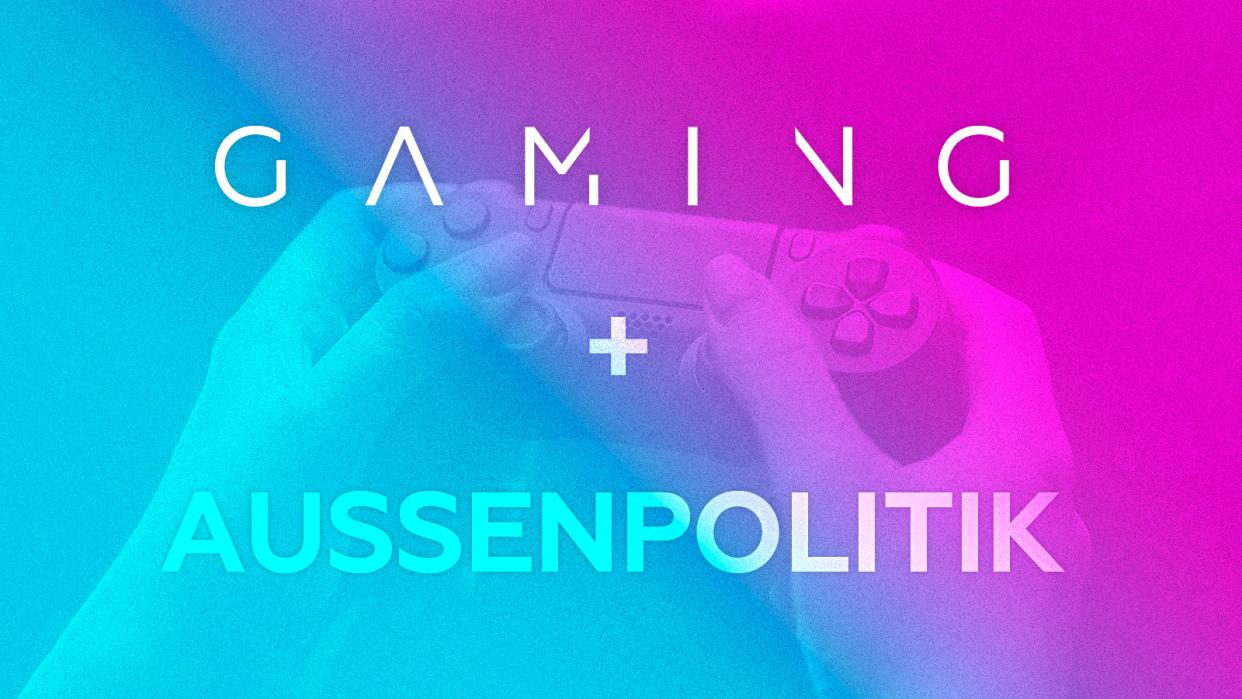Over the last ten years, video games have increasingly emerged as an arena of influence for foreign and security policy. Headlines like “UK military fears robots learning war from video games” (BBC), “Pentagon leak spotlights surprising interplay between gaming and military secrets” (CNN), and “Trolls are using this life-like video game to spread misinformation about the Ukraine war” (EuroNews) speak for themselves.
Such headlines show what many NATO member states have already recognized and thought about strategically: video games and their derivatives (eSports streaming platforms, drone races, etc.) can and will be misused by hostile actors for disinformation and the destabilization of democracies.
As part of the NATO-funded “Gaming and Foreign Policy” project, DGAP aims to counter these dangers. The project strives to raise awareness of the potential risks of gaming for cognitive warfare, deepen understanding of the geopolitical and cultural implications of video games, and empower people to act. At the same time, it aims to promote dialogue between the gaming community and experts in foreign, security, and cultural policy. In this context, attention will be paid to the strategic roles and possible dangers of gaming in line with NATO’s goals.
At the very least, this approach will contribute to helping the general public be more informed about where gaming and foreign policy intersect and view the topic more critically. It thus corresponds to DGAP’s mission to promote debate related to foreign policy issues among political decision-makers and members of civil society.
Project Details
Germany is the largest gaming market in Europe; host to the world’s largest trade fair for computer and video games, the Cologne-based “Gamescom”; and a frequent target of disinformation campaigns. Thus, the country is a “key arena” for combating disinformation and cognitive warfare around gaming. Considering the topic’s significant role, the German Foreign Office appointed Manouchehr Shamsrizi – now an associate fellow at DGAP and part of the project team – as its first “in-house gaming expert” in the field of strategic communication in 2022.
Objectives of the Project
- Raise awareness of the use of video games in cognitive warfare
- Promote a dialogue between gamers and foreign policy experts
- Bridge the gap between the spheres of gaming and politics – and, in doing so, also highlight the strategic roles and potential risks of gaming in line with NATO’s objectives
- Contribute to better informing the general public about issues related to international relations and security
- Raise awareness of cognitive warfare – especially increasing awareness of the use of video games in cognitive warfare, particularly among young people in countries that are NATO members and allies
Target Groups
The project is designed to address two primary audiences:
First, young people from NATO member states and allied countries, especially gamers, are to be made aware of the use of video games and gaming platforms in cognitive warfare. These groups are crucial because they are not only consumers of gaming content, but also potentially vulnerable to subtle influences through information manipulation on these platforms.
Second, the inclusion of members of groups such as DGAP – particularly members of Young DGAP – will appeal to those interested in foreign, security, and cultural policy. These individuals will be educated about the opportunities and risks of gaming in relation to NATO’s strategic goals.
The potential production of video formats will be particularly beneficial for both groups. For the gaming community, these formats are already a familiar and preferred medium for content consumption, making them an effective means of educating and raising awareness. These individuals, who may not be as familiar with gaming, can gain insights into its implications in foreign and security policy through these engaging and informative formats. By utilizing these media formats, the project aims to bridge the world of gaming with the realms of politics and international relations. In doing so, it strives to foster a more nuanced understanding of the role of gaming in contemporary geopolitics. Accordingly, policymakers will also be made aware of these thematic intersections at the planned events (see below).
Implementation Strategy
The project will be implemented in three phases:
- Planning and preparation: Organizing outreach activities and preparing a workshop and a public evening event
- Implementation: Holding the workshop and evening event at DGAP in Berlin
- Follow-up: Evaluation and follow-up activities to ensure sustainability
Activities/Events:
- Half-day workshop (morning): A workshop at DGAP in Berlin with 30 participants from the fields of gaming, politics, and civil society to communicate the impact of gaming on foreign policy
- Public event (evening): A hybrid event with keynote speeches and panel discussions that can be attended by up to 80 people at DGAP in Berlin and a broader audience online
- Guided Tour @ Gamescom in Cologne: A guided tour for DGAP members at Gamescom in Cologne will be organized and conducted. Gamescom is the largest gaming event in the world and will take place at the end of August 2024.
Contact: For further information and partnership opportunities, please contact Niklas Hintermayer (hintermayer@dgap.org) or Anna Zimmer (zimmer@dgap.org) of the project team.
The DGAP project “Gaming and Foreign Policy” is funded by NATO.


